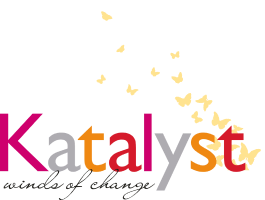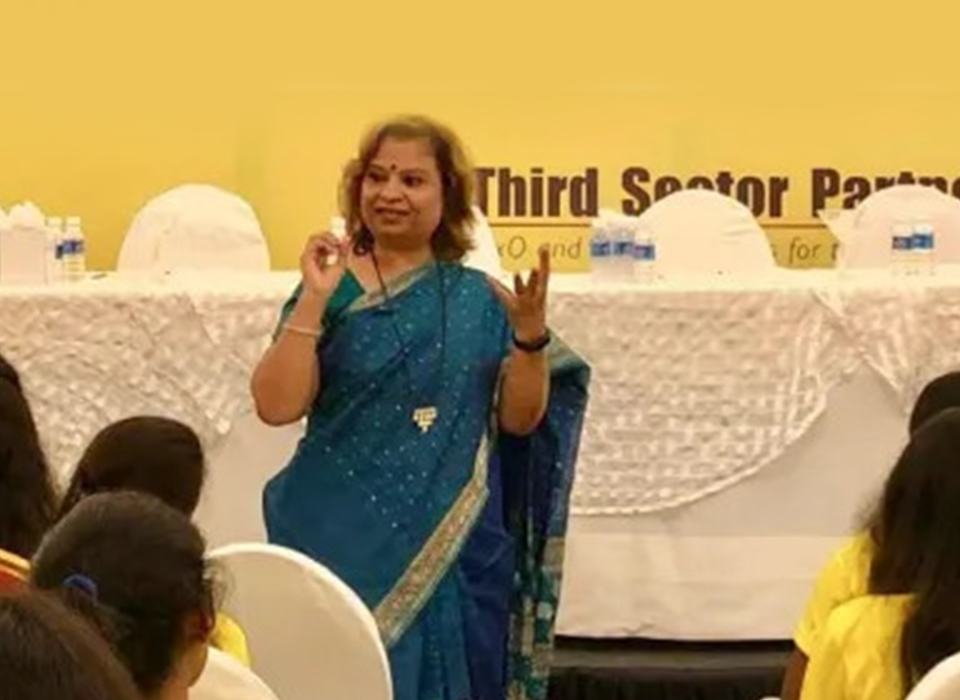Career in Social Sector

Keerthy Murugan
April 18, 2022
I am Better Because Of You: Benefits of Mentoring
May 11, 2022How to successfully pivot to a Career in Social Sector?
The void in my life
It was April 2019, it had been almost 2 decades of working in the IT industry in multiple roles. In this time, I had moved from India to the US and back, worked with services and product companies, covering a wide array of aspects from development to quality assurance to support roles. I had managed teams of up to 70 very senior, capable Engineers. It had gotten to a point where delivering on software releases, dealing with bugs and customer accounts, did not provide me the same high anymore.
A fulfilling life
On the contrary, it had been only two years since I volunteered as a mentor with Katalyst where I got to know two brilliant students. Meeting with them, working with them on their goals and dreams, reliving my college days through them, used to be the highlights of my month.
The opportunity of a career in social sector
I had always wanted to switch to the social sector at some point in time but felt that I did not know enough and had no experience to make a significant contribution. When the opportunity of being Katalyst’s COO arose, I did not know what to expect. I did not quite comprehend the job role, but I was committed to learn and make it work.
I felt reassured that I had the organizational and team-building skills, a strong connection with people, and a love for data and numbers. These skills are important and relevant in any context.
Beginning with a resolve
Katalyst aligned with my core strength of Engineering and my belief in teaching a person to fish, rather than providing them meals.
I felt that I will not let what I cannot do, interfere with what I can do. I took the plunge, with the words of John Wooden resonating within:
Do not let what you cannot do interfere with what you can do.
John Wooden
Related Read: Action Is The Prescription To Overcome Confusion
Newer pastures and newer experiences
I joined Katalyst to manage operations but additionally started setting up an automated data information management system and managing the technology roadmap.

Though I was new to this sector, there were multiple skills from my previous experience that helped me in my new career in social sector. I was still doing project management, just on a different type of project. I was once again setting up systems and processes to scale the program. I continued to analyze data and create insights and action plans. I was still solving problems creatively. I was using my understanding of technology and tools to speed automation. Since I understood the software lifecycle, it helped me better interface with vendors for digital adoption in the organization.
I felt satisfied technically and socially. I was making a difference in the lives of 650+ young, curious, bright minds.
What has moving to the social sector taught me?
This move of switching to a career in social sector has taught me several things and changed my thought process in many ways. Here is a list of some of them that come to mind as I try to pen down my thoughts:
- I have grown a lot. I gained the confidence to switch to unknown territories and figure things out.
- I do not need to earn a fat paycheck to feel good. Support from the family and their belief in you can help you tackle any challenge along the way.
- It also helped me re-believe that there is a lot of good in the world and everyone will help in any way possible if they find the right medium to do so.
- It also brought my life into perspective – we lead a blessed life. Seeing the lives of the many wonderful students that we work with, one can shine despite coming from adversities, as long as the person has the will to do so.
- Though it is ok to fail and learn from it, you need to have the motivation and put in the hard work with your eye only on success – failure should not be considered as an option.
- Professionally this move has taught me that a small change is sufficient to create a larger impact.
- It has also introduced me to a passionate purpose-driven team that creates wonders. Everyone comes from different personal and professional backgrounds but works for a common goal with no hidden agendas, away from the rat race.
- NGOs also need to be run professionally where you are answerable to the many well-wishers who hand you their hard-earned money and time to be put to good use.
- Automation is needed in any field to take away the mundane tasks and help a team focus on quality.
Related Read: 7 Steps to dealing with adversity , Gratitude , Citizen Developers, Perception
How is the social sector different?
When it comes to the social sector we need to pay heed to the words of Edward Everett Hale
I am only one, but I am one. I can’t do everything, but I can do something.
Edward Everett Hale
Empathy is the topmost skill needed for a career in social sector.
People have a common misconception that it is an “easy” life – it’s not.
The real issues may not be apparent – you need to dig in to understand the root cause of a problem.
And most importantly, you do need to track your impact, but not all impact is measurable. There are several non-tangible outcomes as well.
The Final Word
For those who are thinking about switching sides, to a career in social sector go for it! You don’t need to be a master of social work to lead social change.
As someone once said:
A bird sitting on a tree is never afraid of the branch breaking because her trust is not on the branch but its own wings.
So always believe in yourself.
Related Read: Effective Leadership In A Crisis
Are You A Curious Person?
Open doors to new opportunities and a transformational journey. Sign Up and join to mingle with other like-minded curious knowledge seekers of the QYOUrious community.

